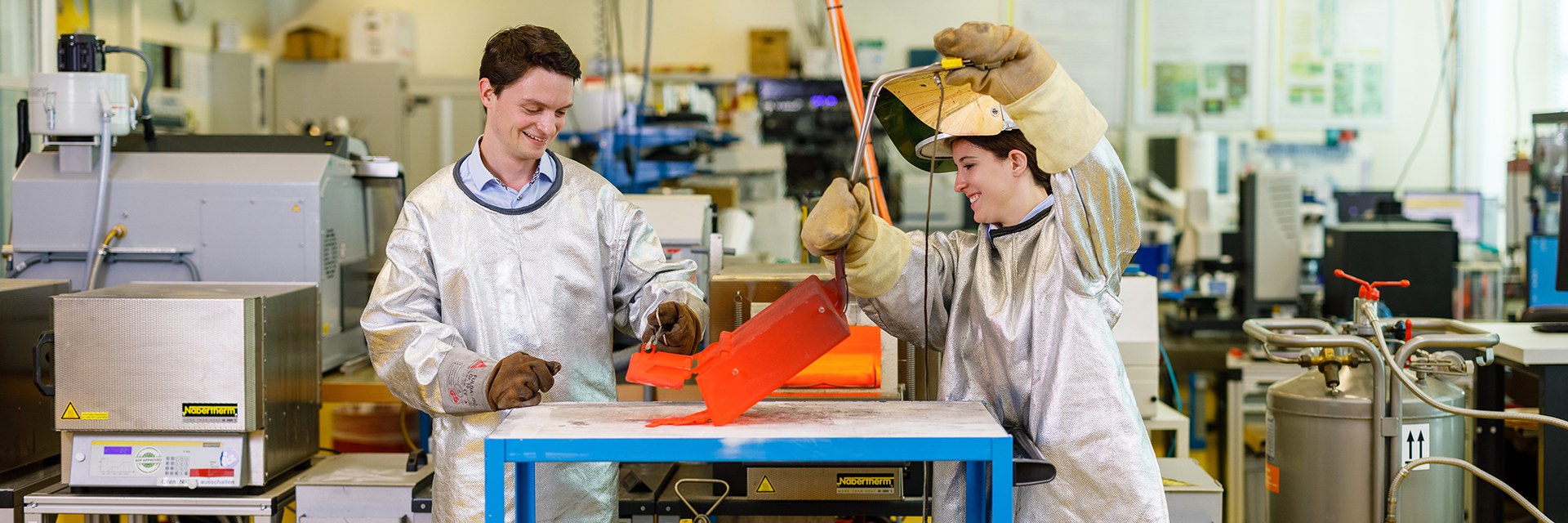
Polymer Technologies
Plastics feature predominantly in the items we use in everyday life and have become indispensable. Polymer materials play an important role in achieving technical progress in a range of fields.
Plastics engineering is a specialisation in the Bachelor of Science in Mechanical Engineering degree programme.

“I like how varied the Plastics engineering specialisation is. Polymers can be used in a variety of fields such as aviation, automotive engineering, the packaging, sports and electronics industries or in medical technology. The course and the potential fields of work are just as diverse.”
"Plastics" cover a group of materials with a broad spectrum of properties – from film for food packaging through to carbon fibre reinforced plastic components for aeroplane structures like on the Airbus A380, for example.
The plastics engineering specialisation gives students an overview and understanding of reinforced and unreinforced polymer materials. By correctly selecting and processing these modern materials, it is possible to create lightweight, unconventional and sometimes very resilient components in a cost-effective way.
This major covers the evaluation, forming, processing and recycling of plastics and composites. New injection moulding processes for nanostructures through to structures for racing sailing yachts or cars are topics that our students will cover as part of the specialisation.
Plastics are a tradition at the FHNW University of Applied Sciences and Arts Northwestern Switzerland. As the only University of Applied Sciences and Arts in Switzerland, the FHNW has offered the plastics engineering major as part of the Mechanical Engineering degree programme for over 40 years now. The plastics engineering specialisation is correspondingly embedded in a well-established teaching and research environment.
